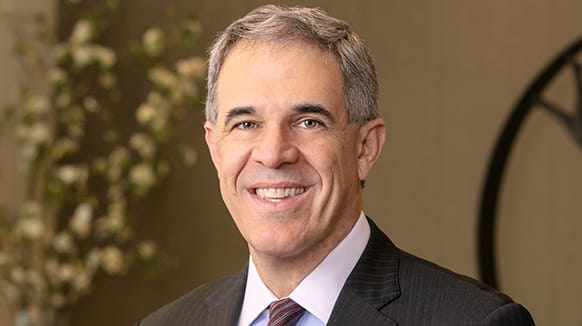President Obama’s National Security Advisor Susan Rice gave a briefing on October 14 at the Wilson International Center for Scholars in Washington, DC, that had been advertised as announcing “a new Presidential Directive guiding the Obama Administration’s approach to Cuba.” Although the policy changes that Ambassador Rice revealed were largely incremental, both the policies and the speech underscored the Administration’s desire to deepen U.S. involvement with Cuba and empower elements in Cuban society that favor domestic entrepreneurship and international engagement.
The clear policy of the Obama Administration is fundamentally to alter the U.S. relationship with Cuba to the greatest extent possible, consistent with the longstanding and still legally binding trade embargo enacted by Congress. In the latest iteration of that policy, on October 14 the Administration published, along with revised regulations from the Treasury Department’s Office of Foreign Assets Control (“OFAC”)1, a Presidential Policy Directive (“PPD”) entitled, “United States-Cuba Normalization.”2 The PPD states that it “(1) describes the U.S. vision for normalization with Cuba and how our policy aligns with U.S. national security interests; (2) assesses progress toward normalization; (3) describes the current and foreseen strategic landscape; (4) describes priority objectives for normalization; and (5) directs actions required to implement this PPD.”
Among other objectives, the PPD states that the United States seeks:
- A prosperous, stable Cuba that offers economic opportunities to its people.
- Increased travel and economic interconnectedness that will support improved livelihoods for the Cuban people, deeper economic engagement between our two countries, as well as the development of a private sector that provides greater economic opportunities for the Cuban people;
- Increased respect for individual rights in Cuba; and
- Integration of Cuba into international and regional systems.
The newly released amendments to OFAC’s regulations are intended to support these objectives. For example, the United States sees Cuba’s medical industry, both its physicians and its pharmaceutical development efforts, as an area where Cuba has a marketable comparative advantage. To support that sector, the new OFAC regulations permit increased collaboration between U.S. and Cuban medical researchers, as well as allow Cuban pharmaceuticals to be considered for FDA approval.
A number of other OFAC regulations were liberalized, such as by providing several exceptions to the complete prohibition on vessels that had traded with Cuba within 180 days from entering U.S. waters.3 OFAC regulations were also amended to authorize professional meetings and conferences in Cuba relating to tourism. New authorization is similarly provided to allow U.S. persons to provide services related to developing, repairing, maintaining and enhancing certain types of Cuban infrastructure, such as public transportation systems,4 water and waste management facilities, non-nuclear energy generation and distribution (which could present new opportunities for the U.S. energy sector for a country arguably too dependent on Venezuelan hydrocarbons), hospitals, public housing and schools. In addition, a general license was issued by OFAC that allows U.S. persons to enter into contingent contracts for transactions still prohibited by the regulations and to engage in activities ordinarily incident to negotiating such contracts. Performance of such contracts must be conditioned on OFAC authorizing the underlying transaction or on a change in the regulations such that specific authorization is no longer required. This change appears to address the historic conundrum that even negotiating with a Cuban counter-party could trigger an OFAC violation.
With respect to safety-related services, OFAC is adding a new authorization that will allow persons subject to U.S. jurisdiction to provide civil aviation safety-related services to Cuba and Cuban nationals aimed at promoting safety in civil aviation and the safe operation of commercial aircraft. Similarly, the BIS will generally authorize air cargo to transit Cuba, complementing an existing general authorization for cargo transiting Cuba aboard vessels. These developments also appear to be in furtherance of the Obama Administration policy related to the liberalization of civil air transportation services.
OFAC is also making a technical correction to clarify that certain agricultural items, such as pesticides and tractors, authorized by BIS for export or re-export to Cuba, are not subject to restrictions on payment terms (i.e. the historical cash requirement for payment terms would not apply).5 In contrast, as required by the Trade Sanctions Reform and Export Enhancement Act, authorized exports and re-exports to Cuba of agricultural commodities, such as poultry and corn, remain subject to the limited payment and financing terms of cash in advance or third country financing.
With respect to consumer goods for personal use, the Treasury Department has announced that BIS will generally authorize exports of certain consumer goods that are sold online or through other means to eligible individuals in Cuba for their personal use.6 However, given the existing restrictions to the U.S. credit card and banking network, it remains unclear how important this change will be.
One other notable, and no doubt popular, revision to the regulations is the removal of the limits on the value of items for personal use ($400) and on alcohol and tobacco products ($100) that may be carried in accompanied baggage by U.S. travelers returning from Cuba. The normal limits on duty and tax exemptions for accompanied baggage, including the proviso that such goods be for personal use, will now apply.
Conclusion
The changes announced by the Treasury Department are designed to advance the Obama Administration’s goal to further the relationship with Cuba, within the statutory boundaries established by Congress. The pronouncements as to BIS remind investors that cross-border activities with Cuba implicate various federal regulatory bodies. It also remains to be seen how the energy and infrastructure sectors respond to these developments, and whether U.S. companies will continue to explore opportunities with Cuba or will await the next administration and the policies it takes in connection with Cuba.
1 See Treasury Department Press Release, Oct. 14, 2016 (“Press Release”)
2 United States-Cuba Normalization
3 This amendment covering inbound voyages parallels the March 16, 2016 amendment that allowed vessels transporting authorized cargo from the United States to Cuba to carry other U.S. -origin cargo and then proceed to a third country with the U.S. - origin cargo.
4 One possible opportunity is the improvement of the Cuban air transportation system, which could enhance its tourism sector, which is widely viewed as one of the most competitive sectors of the Cuban economy. Such opportunity could be subject to the U.S. Department of Commerce Bureau of Industry and Security (“BIS”) approval and licensing process.
5 See Press Release, p. 3.
6 Id.

